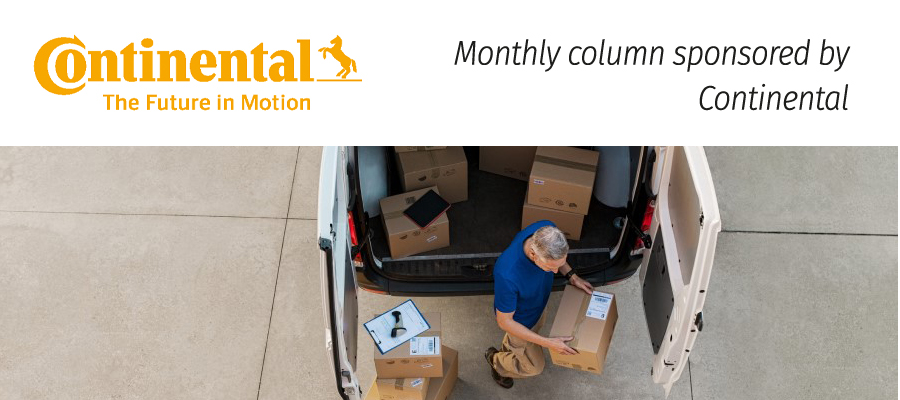🕒 Article read time: 2 minutes
Choosing the right tyre helps to reduce fuel consumption and CO2 emissions

• 17 billion kilometres covered by trucks and vans from customers returning goods
• One in four trucks is carrying returns from distance selling businesses
With no need to travel long distances and no annoying searches for a parking space when you get there, e-commerce is becoming increasingly popular with consumers.
Revenues posted by Amazon and other online retailers have been rising for many years, and with a large number of high-street businesses forced to close as a result of restrictions imposed to combat the coronavirus pandemic, the sector has enjoyed another significant boost.
According to figures from The Office of National Statistics, UK online sales in August were 38.9 per cent higher than pre-pandemic levels, recorded in February 2020.
However, the boom in orders also has a downside: transport service providers cover around 60 billion kilometres on deliveries in Europe and the USA each year – and close to 17 billion kilometres carrying returns. The latter figure equates to 73 journeys between Earth and Mars. The fact is that one in four trucks is being used for returning items, emitting around 1.5 billion kilograms of CO2 in the process.
Against this background, it is clear why the EU is imposing obligations on truck manufacturers to reduce CO2. By 2025 all truck makers must cut the CO2 emissions of their heavy-duty commercial vehicles by 15 percent compared to the 2019 average. By 2030 the reduction needs to be 30 percent. Tyres can play a significant role in achieving these ambitious targets. A key factor here is rolling resistance. This has a major impact on fuel consumption – which, in turn, directly relates to a vehicle’s CO2 emissions. So, choosing the right tyres has equal benefits for the environment and fleet operators. And those benefits are substantial.
However, it is not only fleet operators who can contribute in a big way to reducing CO2 emissions – and thus protecting the environment and fighting climate change; anyone buying a product on the Internet can help, too. All it needs is for consumers to act with more thought when shopping online and so avoid having to send back a large proportion of what arrives on their doorstep.
Published On: 15/10/2020 14:04:37

Comments Section
If you are a Logistics UK member login to add comments.